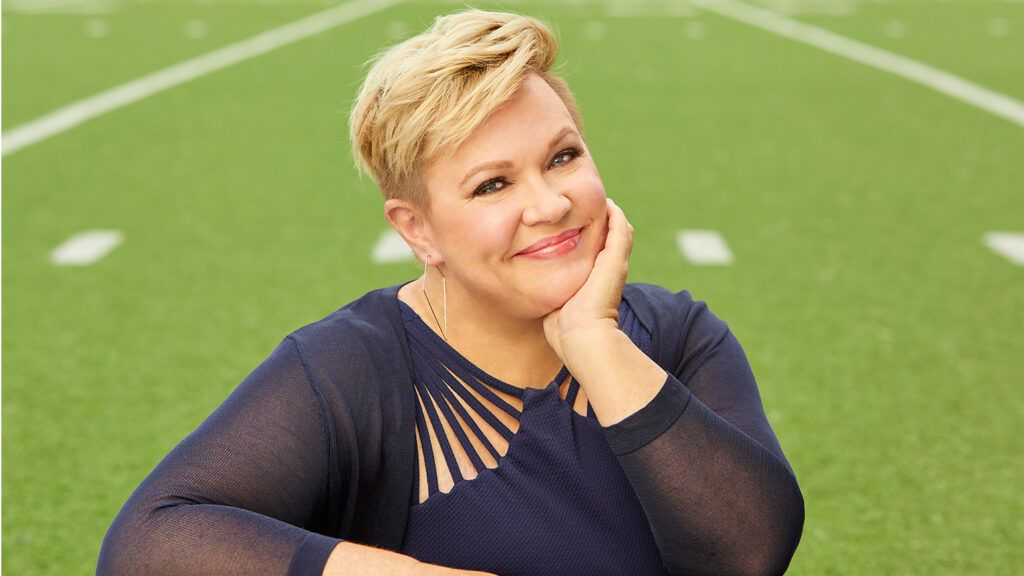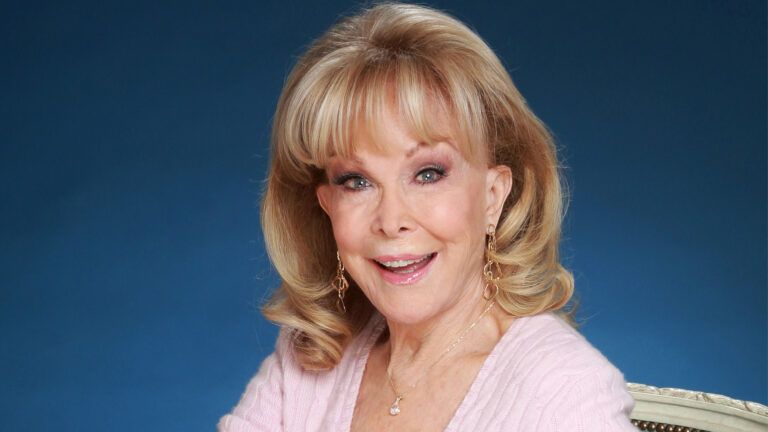I stood beneath the theater marquee, the name of my show in bright lights. Broadway, the Great White Way, a place where dreams are born. And die. My wife, Alana, squeezed my arm. The last of the audience trickled into the theater. “I guess that’s it,” I said.
“It was still worth it,” she said.
Nothing she could say would hide the truth. Eighteen years of writing and rewriting, readings, tryout runs, backers’ auditions and countless rehearsals. This was it. My musical had opened on Broadway and now, four months later, was closing.
That I’d come this far was amazing enough. I was the least likely person to write a Broadway musical. A police officer and an education director at a church. I loved working with kids, loved our church and community—but part of me wondered if I was meant to do more.
One hot summer day, the roller hockey team I coached was playing in an outdoor tournament. Between games, I had to get out of the heat. I was desperate for an air-conditioned place to eat my lunch. What I found was the school library. I ducked inside and wolfed down a sandwich. With a few minutes to kill, I wandered over to the shelves. I pulled out a book at random, John Newton: Letters of a Slave Trader Freed by God’s Grace. Sat down and began reading.
Born in England in 1725, Newton captained several slave trading ships. His life took a dramatic turn after a storm at sea—and the conversion experience it inspired. He became a pastor and repented his former life. In his pamphlet Thoughts Upon the Slave Trade, he detailed the atrocities of slavery and decried his part in it. He allied himself with William Wilberforce and advocated for the abolition of the slave trade.
He also wrote several hymns. One was “Amazing Grace.”
I sat back in my chair. How had I missed this? In college, I was a history major but I’d never heard of Newton, never known his story. Now I was suddenly convinced it needed to be told—in a big way. As I flipped the book shut, two words came to mind: epic musical.
Really? Maybe it was because I’d been listening to the soundtrack of the musical Les Misérables on repeat, singing along to myself, fascinated with the way a huge sprawling story could come alive through song, the characters’ conflicts dramatized in music. What if someone did the same thing with Newton? What if I did it?
I went back to the hockey rink and coached the second game, but mostly I was in eighteenth-century England, thinking of a life touched by grace.
That evening I got home, dropped my equipment bag in the walkway and went straight to the kitchen, where Alana was making dinner. “I read a book today about the man who wrote ‘Amazing Grace.’ Did you know he was a slave trader?”
“No,” she said.
“And then an abolitionist?” She shook her head, and I continued. “I had this idea—I know it’s going to sound crazy—but I think his story should be a musical and I think I should write it.”
“Do it,” Alana said. “You’re always telling young people not to put God in a box, not to limit themselves. Prove it.”
It says a lot about my wife that she didn’t immediately burst out laughing. I was not a classically trained composer. Couldn’t read music, couldn’t tell you what any note was on the bass or treble clef. I liked to play my guitar and sing. I could pick out tunes on the piano, but that was all by ear. As for writing…well, I hadn’t written anything but an accident report in years.
Still, I was sure that Newton’s story of “Amazing Grace”—that would have to be the title—was meant to be a Broadway musical. Written by me. No harm taking out my guitar and strumming a few chords. If the whole thing fizzled out, okay. At least I tried.
In between work for the police department and the church youth group, not to mention time spent with our two kids, I would hunker down and write a song or two. Words would pop into my head, melodies came unbidden. But if this was slated for Broadway, it needed to have an orchestral accompaniment. Needed to be scored for strings and keyboard, drums, a double bass, brass. How else to recreate that violent storm that first brought Newton to God?
I bought some rudimentary music software and transcribed the sounds I heard in my head. Note by note, chord by chord, transposed from my guitar.
How many times was I ready to give up? Pretty much every day. I felt like Moses when he was asked by God to free the Israelites from Pharaoh. Why would God choose Moses, a terrible public speaker, to take on such an enormous task? Why would God pick a police officer and youth pastor to write a musical? And yet that notion I’d had in the school library kept speaking to me.
Slowly the songs started adding up, the story taking shape. I’d get fed up and walk away. Then another idea, maybe a lyric, would come. “You helped me see a vision of the man I could become,” John Newton could sing. Christopher Smith too. Grace could transform any of us.
One day, I was with my friend Rich, messing around on the guitar. “What are you working on?” he asked.
“Nothing,” I said. “Just a crazy idea for a musical. It’s about John Newton, the man who wrote ‘Amazing Grace.’”
“I love ‘Amazing Grace,’” Rich said. “Let me hear what you’ve done.”
I played a few bars of a song. Rich wanted more. And more. “I know some people who need to hear this,” he said. He owned an ad agency and convinced me to pitch the idea to some bankers and businesspeople he knew.
Rich scheduled that appointment and more—many more—to see if we could raise the funds to put on a performance. I hate asking for money. If God meant to test me, I was being tested. “The show’s not even finished yet,” I’d say. “I’m a cop, not a composer.” I figured we’d get laughed out of one office after another. Instead, we raised $350,000 in three months, enough for me to leave my job and work on the musical full time.
A theater in Texas agreed to mount a production, only to pull out at the last minute. Goodspeed Opera House in Connecticut wanted to put it on, and I did more polishing. In the midst of all this, Alana found out we were expecting another baby and, at seven months, was diagnosed with breast cancer. Our daughter had to be delivered prematurely, and Alana underwent chemotherapy and radiation treatment. If ever anybody needed to be touched by God’s grace, we sure did.
Our daughter proved to be healthy. Alana’s treatments were successful. We praised God. All the while, I worked on the show and we raised more money. A theater in Chicago agreed to put on a production. A few months after that, we got amazing news: The producers had booked the Nederlander Theater in New York City for a July 2015 opening. We were headed to Broadway!
I thrive under pressure, but as the writer, there wasn’t a lot for me to do during final rehearsals. I kept moving around the theater, checking the sight lines. I plopped myself in C4 in the orchestra, and it occurred to me that some theatergoer would soon be there. At our first run, in Connecticut, I’d prayed over every single seat in the auditorium. I’d done the same thing in Chicago. Now it was time to pray for those who would see the show on Broadway. I closed my eyes and prayed, “Bless the person who sits here.” I moved over to C5, C7, C9 and kept at it. I ended up sitting in every seat in the theater, praying the same prayer.
Advertisements for Amazing Grace appeared on buildings, on buses, in subway stations. Finally, opening night. Reviews poured in, some good, some bad, but the producers were hopeful for a long run. The show was a crowdpleaser. The impossible had happened.
Still, New York was always going to be the hardest market for Amazing Grace. After three months, the creative team came to a difficult decision. We had to close. We’d gambled and lost. My dream was on life support.
Alana and I stood outside the theater on that last night for the longest time. All those years we’d invested, all that money raised. Lord, I thought, was all of this a waste?
I took a deep breath and steeled myself to go in and watch my show one last time. A woman in a head scarf came up to me and asked, “Are you Christopher Smith?”
“Yes,” I said.
“I’m going through chemotherapy,” she said. “It’s been very difficult. But I have to tell you the one thing that brings me hope is your show. I don’t usually come to the city very much, but this is the eighth time I’ve seen Amazing Grace.”
Her words drove away all my self-pity and disappointment. My dream hadn’t died at all. It was still alive, living on in all those who had seen the show. It was the message—not my message but God’s message of “Amazing Grace”—rekindled in thousands of people.
In fact, the show did not end that night. It played for eight weeks at the Museum of the Bible in Washington, D.C., then went on a nationwide tour this year, hitting 27 states. Soon schools, churches and community groups will do their own productions, inspiring more. How sweet a sound that will be.
For more inspiring stories, subscribe to Guideposts magazine.





